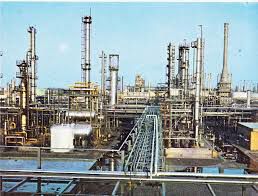1948: THE BRITISH LABOUR GOVERNMENT AND THE COMING OF THE ANGLO-IRANIAN OIL COMPANY’S CRISIS
In 1945 the Labour Government inherited a huge and complex empire. It appeared that the British Empire had yet again emerged intact from a fundamental challenge, but in real terms this was not the case. The global war’s impact on Britain was a massive debt, mainly to the United States. Additionally, estimates have shown that 10% of Britain’s pre-war wealth or no less than one-quarter if disinvestments were also included, had been lost. Most importantly, Britain was able to pay for only a fraction of the imports she needed both for current survival and for the reconstruction of her economic well being.
Through Lend-Lease and her ability to run up enormous debts to members of the sterling area it had been possible during the war to divert a large proportion of her former export industries to war production, so that at the of 1944 he exports stood at only about one-third of their pre-war volume.47
As for import needs, they remained the same as in 1938, in addition to the fact that terms of trade had also moved against Britain:
invisible earnings had fallen through the loss of one-quarter of the merchant marine, and liquidation of over £1 billion in foreign investments. Britain’s external liabilities were nearing £3.5 billion by the middle of 1945 – a seven-fold increase – yet her reserves totalled less than £500 million.48
According to the calculations over the next three years, before Britain could pay its way internationally, further debts of at least another £1.25 billion would be incurred. Furthermore, given the many changes in the country’s economic predicament,
it was expected that in order to achieve long-term solvency the volume of British exports would have to be at least 50 per cent higher than before the War. This figure was later revised to 75 per cent. Yet, in June 1945, no less than 45 per cent of the nation’s employable manpower was still directly or indirectly devoted to the war effort. Conversion to the needs of peace had barely begun.49
As a result ‘the material fruit of victory were not much in evidence.’50
If not among the public, defence, foreign and colonial policy received considerable attention in the Labour Party. This was as a result of the emergence of two new superpowers, the United States, with its possession of atomic weapons, and the Soviet Union, which would clearly have such weapons soon. Although the economic pressures on the Labour Government were a principal cause of its post-war foreign policies, ideological factors played a leading role in influencing Labour leaders in formulating their policies. Therefore, it is essential to bring the Labour Party’s colonial doctrine to attention.
The Labour Party always considered itself primarily a socialist party and only to a limited extent as Marxist. Its organisation and doctrine grew out of the pragmatically oriented British trade union movement and an old humanitarian Christian reform ideal, which at times entered a phase of social and political radicalism and took over the liberal inheritance. This characteristic tradition of the British working-class movement, which survived in years to come in spite of adoption of some Marxist theories, also determined the Labour Party’s colonial doctrine. 51
The British Labour Party until 1914 did not have an anti-colonialist doctrine which could differentiate it from the continental socialist parties. ‘In 1900, led by Bernard Shaw and Sidney Webb, the Fabian Society even openly supported imperialism and rejected the pro-Boer attitude of leading liberals.52 But, in the years which followed, Sydney Oliver, C.R. Buxton, Mary Kingsley and E.D. Morel’s influence, who represented the liberal or radical tradition, made itself felt. They were more interested in the actual situation in the colonies than in a theory of imperialism. They demanded more active reforms, to improve the lot of the native population, instead of the withdrawal of the colonial power.
Hobson provided the Labour Party with a ‘doctrine’, since he integrated colonial imperialism in economic terms; however, Hobson was not a socialist nor even a Marxist, but a radical reformer who anticipated the concept of trusteeship in his demand for an ‘enlightened’ colonial policy.’53
- C.J. BARTLETT, A History of Post-War Britain, 1945-1974, (London: Longman, 1977) p. 24.
- Ibid.
- Ibid.
- D. JUDD and P. SLINN, The evolution of the Modern Commonwealth 1902-80, (London:Macmillan, 1982), p. 87.
- V. ALBERTINI, Decolonization, (London: Africana Publishing, 1982), p. 115.
- Ibid.
- Ibid.



